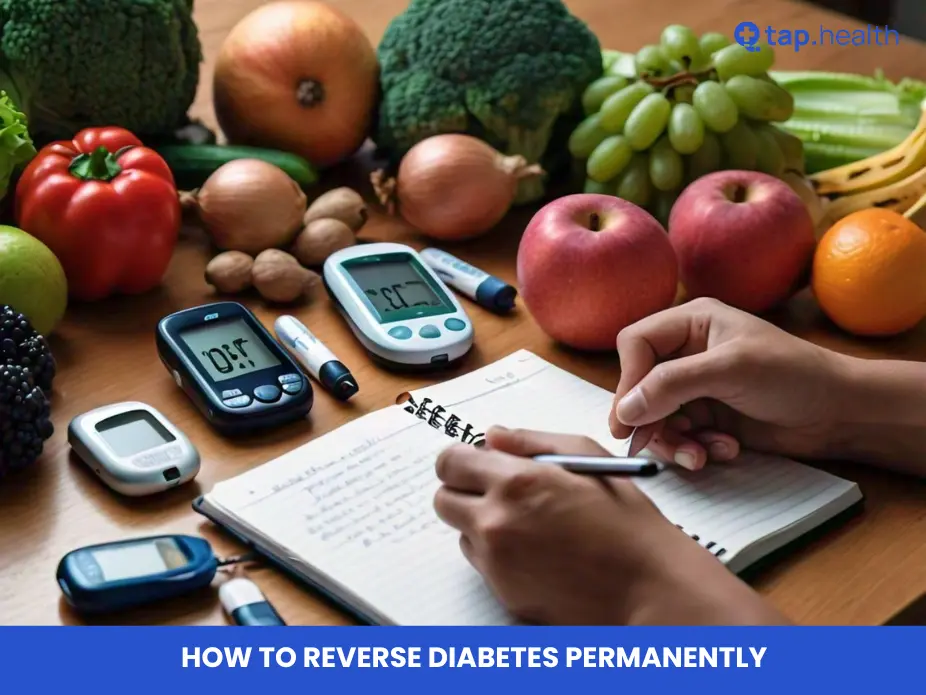Table of Contents
- Understanding the Diabetes-Heart Disease Connection
- Diabetes and Heart Disease: Shared Risk Factors
- Early Warning Signs: Recognizing Symptoms of Both Conditions
- Preventing Cardiovascular Complications in Diabetics
- Diabetes & Heart Health: A Guide to Better Management
- Frequently Asked Questions
- References
Living with diabetes significantly increases your risk of developing heart disease, a fact that often leaves many feeling overwhelmed and uncertain. Understanding the diabetes-heart disease link: symptoms & causes is crucial for proactive management and preventing serious complications. This blog post will delve into the intricate connection between these two conditions, exploring the shared risk factors, common symptoms to watch out for, and ultimately, empowering you with knowledge to take control of your health. We’ll break down complex medical information into easily digestible pieces, so you can feel confident in navigating your journey towards better heart health. Let’s get started!
Understanding the Diabetes-Heart Disease Connection
Diabetes significantly increases your risk of developing heart disease, a leading cause of death in India and many tropical countries. This isn’t just a correlation; there’s a strong causal link. High blood sugar levels, a hallmark of diabetes, damage blood vessels over time, leading to atherosclerosis – the buildup of plaque in arteries. This restricts blood flow, increasing the risk of heart attacks and strokes. The damage isn’t limited to the heart; nearly 30% of people with diabetes develop diabetic nephropathy, a serious kidney complication that further elevates cardiovascular risk.
Understanding the Symptoms
Recognizing the symptoms is crucial for early intervention. Chest pain (angina), shortness of breath, and unusual fatigue are common indicators of heart problems in individuals with diabetes. However, these symptoms can be subtle or masked by other diabetic complications, making early diagnosis challenging. Regular health check-ups, including blood pressure and cholesterol monitoring, are vital. Pay close attention to any changes in your body and consult a doctor promptly if you experience any concerning symptoms.
Identifying the Causes
The connection between diabetes and heart disease stems from several interconnected factors. High blood sugar levels directly damage blood vessels, while other diabetic complications like high blood pressure and high cholesterol further exacerbate the risk. Lifestyle choices also play a significant role. Poor diet, lack of physical activity, and smoking significantly increase the likelihood of developing both diabetes and heart disease. In many tropical countries, access to healthy food options might be limited, making it even more crucial to prioritize healthy eating habits within the available resources. This is further complicated by the strong link between Understanding the Link Between Diabetes and Obesity, a major risk factor for developing type 2 diabetes.
Taking Action
For individuals in India and other tropical regions, managing diabetes effectively is paramount in preventing heart disease. This involves adopting a healthy lifestyle—eating a balanced diet rich in fruits, vegetables, and whole grains, engaging in regular physical activity, and avoiding smoking. Regular consultations with your doctor and adherence to prescribed medication are essential. Taking proactive steps now can significantly reduce your risk of developing heart disease and improve your overall health and well-being. It’s also important to be aware of the connection between diabetes and other metabolic issues, such as The Link Between Diabetes and Fatty Liver, which can further increase cardiovascular risk.
Diabetes and Heart Disease: Shared Risk Factors
Diabetes significantly increases the risk of heart disease, a leading cause of mortality globally, particularly in India and other tropical countries. This heightened risk stems from several overlapping risk factors. High blood sugar, a hallmark of diabetes, damages blood vessels over time, leading to atherosclerosis—the buildup of plaque in arteries. This process restricts blood flow, increasing the chances of heart attacks and strokes. Hypertension (high blood pressure), another common complication of diabetes, further exacerbates this vascular damage.
Moreover, individuals with diabetes often experience elevated levels of triglycerides and low levels of high-density lipoprotein (HDL) cholesterol – the “good” cholesterol. This unfavorable lipid profile contributes to the development of heart disease. Additionally, diabetes can lead to insulin resistance, impacting the body’s ability to regulate blood sugar and further increasing cardiovascular risk. The impact is significant; research shows smokers with diabetes face twice the mortality rate from cardiovascular issues compared to non-smokers with diabetes. This highlights the crucial need for proactive management in high-risk populations. For advice on managing diabetes as you age, see our guide on Managing Diabetes as You Age: Challenges and Solutions.
In India and tropical regions, where lifestyle factors like unhealthy diets and lack of physical activity are prevalent, the combined burden of diabetes and heart disease poses a serious public health challenge. Early detection and comprehensive management of diabetes, including blood sugar control, blood pressure management, and lifestyle modifications, are vital in mitigating this risk. Learning how to Protect Your Heart from Diabetes: 5 Essential Steps is crucial for prevention. Consult your doctor for personalized advice and regular checkups to safeguard your cardiovascular health.
Early Warning Signs: Recognizing Symptoms of Both Conditions
Understanding the Intertwined Risks
Diabetes and heart disease share a deeply troubling connection, particularly prevalent in India and other tropical countries. Many symptoms overlap, making early detection crucial. The good news is that up to 80% of Type 2 diabetes cases can be delayed or prevented through lifestyle changes. Learn more about preventative measures. Recognizing the early warning signs of both conditions is therefore paramount for improved health outcomes.
Common Symptoms: Diabetes & Heart Disease
Diabetes often presents with increased thirst and frequent urination, unexplained weight loss, blurred vision, and slow-healing sores. Heart disease symptoms can include chest pain or discomfort (angina), shortness of breath, fatigue, and swelling in the legs and ankles. However, many experience no noticeable symptoms, highlighting the need for regular check-ups, especially for individuals with a family history of either condition or those living with prediabetes. For more detailed information on diabetes symptoms, see our article on 10 Early Signs and Symptoms of Diabetes?
Regional Considerations
In India and tropical regions, certain lifestyle factors exacerbate the risk. High carbohydrate diets, sedentary lifestyles, and genetic predispositions contribute significantly. Early detection through regular blood sugar and cholesterol checks is particularly critical in these regions, due to the higher prevalence of both conditions.
Taking Action
Regular health check-ups, adopting a healthy diet rich in fruits, vegetables, and whole grains, and engaging in regular physical activity are essential steps. Managing stress levels and maintaining a healthy weight are also vital components of preventative care. Don’t wait for symptoms to appear; proactive healthcare is your best defense against the combined threat of diabetes and heart disease. While this article focuses on diabetes and heart disease, it’s important to remember that recognizing symptoms of other serious conditions is equally crucial. For information on cancer symptoms, you may find Signs and Symptoms of Cancer in Men and Women helpful.
Preventing Cardiovascular Complications in Diabetics
Understanding the Increased Risk
Diabetes significantly increases the risk of heart disease, a leading cause of death globally. This risk is particularly pronounced in women, who experience a 40% higher chance of developing heart disease compared to men with diabetes. This disparity highlights the need for focused preventative strategies, especially in regions like India and other tropical countries where diabetes prevalence is high. Early detection and proactive management are crucial to mitigate this risk.
Lifestyle Modifications for Heart Health
Adopting a heart-healthy lifestyle is paramount for individuals with diabetes in India and tropical countries. This includes maintaining a balanced diet rich in fruits, vegetables, and whole grains, while limiting saturated and trans fats, sugar, and processed foods. Regular physical activity, even moderate exercise like brisk walking for 30 minutes most days of the week, is vital for controlling blood sugar and improving cardiovascular health. Managing stress through techniques like yoga or meditation is also beneficial, as stress can exacerbate diabetes and heart disease.
Seeking Professional Guidance
Regular check-ups with your doctor are essential for monitoring blood sugar levels, blood pressure, and cholesterol. Early detection of any cardiovascular complications allows for timely intervention and improves the chances of successful management. Don’t hesitate to discuss your concerns and explore available resources, such as diabetes education programs and support groups, prevalent in many Indian and tropical communities. Taking proactive steps today can significantly reduce your risk of developing heart disease. Consult your healthcare provider to create a personalized prevention plan tailored to your specific needs and circumstances. For more information on preventing long-term complications, see our guide on How to Prevent Long-Term Complications of Diabetes: Easy Tips. Managing cholesterol is also crucial; learn more about this in our article on How to Manage Cholesterol Levels with Diabetes?
Diabetes & Heart Health: A Guide to Better Management
Understanding the Increased Risk
Diabetes significantly increases your risk of heart disease, a critical concern, especially in India and other tropical countries. A startling statistic reveals that 61% of people with diabetes are aged between 20-64 years; 39% are aged 65+, highlighting the widespread impact across age groups. This heightened vulnerability stems from several interconnected factors. High blood sugar damages blood vessels over time, increasing the chances of heart attacks, strokes, and other cardiovascular complications. This is particularly relevant in regions with high rates of diabetes and existing cardiovascular diseases.
Key Causes and Symptoms
Several factors contribute to this dangerous link. High blood pressure, high cholesterol, and unhealthy lifestyle choices, including poor diet and lack of physical activity, all accelerate the process. Recognizing the symptoms is crucial. Chest pain, shortness of breath, and unexplained fatigue can signal underlying heart problems. Even seemingly minor symptoms, such as swelling in the legs or ankles, shouldn’t be ignored. In tropical climates, the heat can exacerbate symptoms, making vigilance even more vital.
Taking Control: Actionable Steps
Effective management involves a holistic approach. Regular check-ups with your doctor are vital for monitoring blood sugar, blood pressure, and cholesterol levels. Adopting a heart-healthy diet rich in fruits, vegetables, and whole grains is crucial, alongside regular exercise. Managing stress and quitting smoking are also essential steps. Consulting a diabetes specialist and a cardiologist is advisable for personalized guidance and tailored treatment plans. For more detailed guidance on managing your diabetes effectively, check out our article: 10 Proven Tips to Effectively Manage Diabetes | Simple Guide.
Seeking Support in Your Region
Access to quality healthcare is paramount, particularly within the Indian and tropical contexts. Seek out local support groups and resources dedicated to diabetes management and cardiovascular health. Early detection and proactive management can significantly reduce your risk and improve your quality of life. Don’t hesitate to reach out to healthcare professionals for support and guidance. Remember that consistent effort is key, and you can find many helpful strategies in our guide: 10 Proven Tips for Effective Diabetes Management.
Frequently Asked Questions on Diabetes-Heart Disease Link
Q1. How does diabetes increase my risk of heart disease?
Diabetes significantly raises your risk of heart disease by damaging blood vessels, leading to atherosclerosis (hardening of the arteries). This increases your chances of heart attack and stroke. High blood sugar also often goes hand-in-hand with high blood pressure and cholesterol, further increasing this risk.
Q2. What are the symptoms of heart disease in someone with diabetes?
Symptoms of heart disease can be subtle and easily missed in individuals with diabetes, often masked by other diabetic symptoms. Regular health check-ups are crucial for early detection.
Q3. What lifestyle changes can I make to lower my risk of heart disease if I have diabetes?
A heart-healthy lifestyle is key. This includes maintaining a balanced diet, engaging in regular physical activity, and avoiding smoking. These changes help manage blood sugar and reduce cardiovascular risk.
Q4. How important is early detection and treatment in managing the link between diabetes and heart disease?
Early detection is crucial. Proactive healthcare, including regular check-ups and adherence to prescribed medication, is vital for mitigating risk and improving overall well-being. Addressing both diabetes and cardiovascular risk factors simultaneously is essential.
Q5. What are the challenges in managing diabetes and heart disease, particularly in certain regions?
Limited access to healthy food options and high rates of both diabetes and heart disease in some regions pose significant challenges. These factors can make it harder to maintain a healthy lifestyle and manage these conditions effectively.
References
- A Practical Guide to Integrated Type 2 Diabetes Care: https://www.hse.ie/eng/services/list/2/primarycare/east-coast-diabetes-service/management-of-type-2-diabetes/diabetes-and-pregnancy/icgp-guide-to-integrated-type-2.pdf
- What is Diabetes: https://www.medschool.lsuhsc.edu/genetics/docs/DIABETES.pdf



